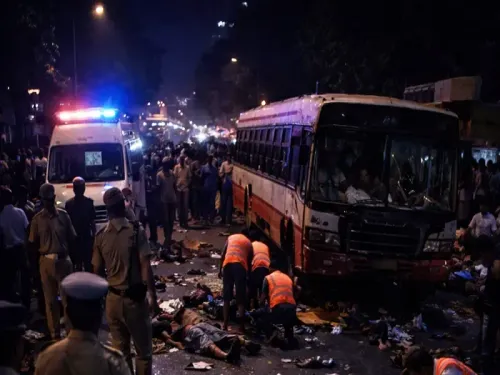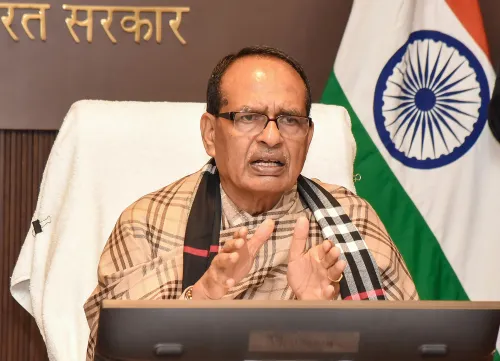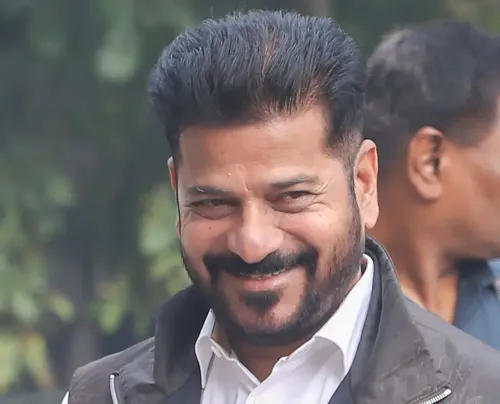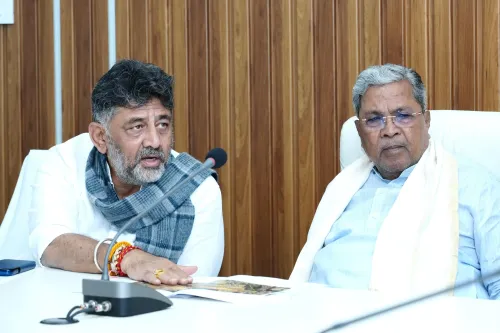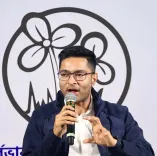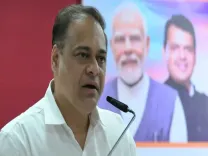Is FairPoint: Rahul Gandhi's Gen Z Gamble Listening?
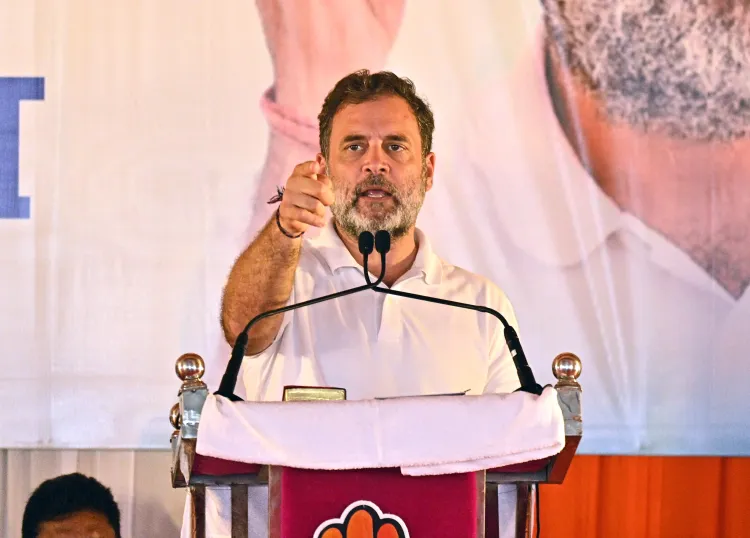
Synopsis
Key Takeaways
- Rahul Gandhi is actively engaging with Gen Z to influence their political perspectives.
- His strategy emphasizes the importance of democracy and social justice.
- The recent youth movements in neighboring countries serve as a model for mobilization.
- Gandhi's narrative of 'vote theft' targets the values Gen Z holds dear.
- The effectiveness of this outreach is yet to be determined.
New Delhi, Nov 9 (NationPress) It is quite fascinating to see how Congress leader Rahul Gandhi is making efforts to attract 'Gen Z' to his viewpoint regarding India, the current Central government, and the overarching social landscape. Almost all of his public rallies and mass-connect events appear strategically crafted to engage a generation that has matured with access to the Internet, smartphones, and social media.
Gandhi has drawn insights from Gen Z movements in Nepal and other nations. He seems to believe that this vast demographic of young individuals can be motivated with consistent information enriched with impactful data and visuals and can be steered toward a specific ideology.
His belief may hold merit. The recent happenings in Nepal, though they resulted in significant destruction, were indeed fueled by youths who coordinated swiftly through online platforms.
Gen Z is recognized for its capability to mobilize individuals en masse around issues that affect their fundamental comforts and liberties -- similar to what occurred in Nepal. Provoked by the government's prohibition on social media, young people in Kathmandu protested vigorously.
What ensued was a phase of severe violence after law enforcement opened fire on demonstrators. The initial fury over the social media ban soon transformed into a wider movement targeting the government and ruling parties. The protesters set ablaze government structures, including the Parliament and courts, assaulted politicians and officials, and ultimately, on September 9, ousted the existing government.
Rahul Gandhi now appears eager to harness that same Gen Z fervor in India -- to galvanize young individuals to rise and contest the current government. Gen Z has showcased its influence in around seven countries, and in several others, it has taken to the streets to express dissent. The Nepal protests in September followed a comparable youth-led agitation nearly a year prior in Bangladesh, which ultimately unseated Prime Minister Sheikh Hasina.
It seems that Gandhi's advisors are confident that India's Gen Z could likewise be energized. This might clarify why Rahul Gandhi has been directly addressing them on pivotal issues -- most notably, his accusations of 'vote theft', aimed at undermining the Modi-led government.
He initially invoked Gen Z shortly after Nepal's violent upheaval. On X, he wrote, "The youth of the country, the students of the country, the Gen Z of the country will save the Constitution, safeguard democracy, and halt vote theft… I always stand with them."
This was a meticulously crafted message emphasizing the Constitution, democracy, and voting rights -- principles that resonate deeply with Gen Z. They are known to be outspoken regarding freedom, rights, and fairness. Hence, when Rahul Gandhi discusses democracy being endangered and elections being manipulated, it's a message likely intended to capture their attention.
His emphasis on Gen Z became even more pronounced on November 5, during a press conference at the Congress national headquarters -- a day prior to the first phase of voting in the Bihar elections. In his opening remarks, he directly addressed young voters: "I want Gen Z to take this seriously because your future is being taken away from you. You are the ones being stolen from."
The presentation focused on his claims of rigging by the Election Commission and the BJP in the Haryana Assembly elections. He concluded by asserting: "India's Gen Z and youth possess the power to restore our democracy with satya and ahimsa (truth and non-violence)."
Such statements reveal that the developments in neighboring countries -- Sri Lanka, Bangladesh, and Nepal -- have become sources of inspiration for Rahul Gandhi and his team. The sheer organizational strength of the youth -- connected, spontaneous, and emotionally charged -- is something every politician would envy. And Rahul Gandhi seems eager to duplicate that energy in India.
Behind the idealism lies a clear political strategy. Gandhi's 'vote theft' narrative -- his allegation that elections under the Modi government are being manipulated -- isn't merely about questioning institutions. It's a carefully chosen hook aimed at a generation that has grown up championing fairness, transparency, and the right to voice their opinions. If democracy is 'being stolen', as he claims, then Gen Z becomes both the victim and the hero in his political narrative.
But will it succeed? That's the more challenging question.
Like their global counterparts, India's Gen Z is a hyper-connected generation. They are tech-savvy, mobile-first, and utilize online platforms for learning, shopping, and socializing. They are trend-focused rather than brand-loyal and are significantly influenced by digital creators. They excel at 'spaving' -- spending smartly by seeking discounts, rewards, and deals. They value flexible employment, good compensation, and travel opportunities. Most importantly, they live in the now, often prioritizing short-term experiences over long-term planning.
Up to now, Gandhi's outreach hasn't generated a visible impact. The rallies are becoming more boisterous, the social media content more customized -- yet the streets remain tranquil. The Gen Z audience is observing, scrolling, and perhaps even agreeing in parts -- but not mobilizing.
Nevertheless, Gandhi's persistence is commendable. His campaign for the Bihar elections was filled with Gen Z references, digital cues, and a tone intended to be conversational rather than combative. He's clearly banking on long-term emotional investment over short-term electoral advantages.
The real assessment will arrive on November 14, when Bihar's results are unveiled. For the NDA, it will test governance. For the Mahagathbandhan, it will examine alliance arithmetic. But for Rahul Gandhi, it will symbolize something more -- a verdict on whether India's Gen Z is prepared to embrace his promise of 'saving democracy'.
At this moment, they seem intrigued -- but not yet convinced.
(Deepika Bhan can be contacted at deepika.b@ians.in)


